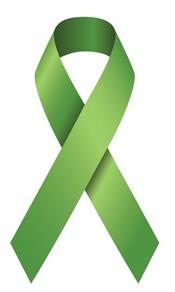 According to the Brain Injury Association of America, an estimated 2.4 million children and adults in the United States sustain a traumatic brain injury (TBI) each year. Whether the victim is an adult, a child or an infant, TBIs can have a major impact on individuals and their families. To raise awareness of traumatic brain injury, the Brain Injury Association of America established National Brain Injury Awareness Month every March.1
According to the Brain Injury Association of America, an estimated 2.4 million children and adults in the United States sustain a traumatic brain injury (TBI) each year. Whether the victim is an adult, a child or an infant, TBIs can have a major impact on individuals and their families. To raise awareness of traumatic brain injury, the Brain Injury Association of America established National Brain Injury Awareness Month every March.1
Brain Injury Fast Facts:
- TBI is a major cause of death and disability in the U.S., contributing to about 30% of all injury deaths.
- In 2010, about 2.5 million emergency department (ED) visits, hospitalizations or deaths were associated with TBI in the U.S.
- From 2001 to 2009, the rate of ED visits for sports and recreation-related injuries with a diagnosis of concussion or TBI, alone or in combination with other injuries, rose 57% among children (age 19 or younger).2
Every day, approximately 138 people in the U.S. die from injuries that include TBI. Those who survive a TBI can face effects lasting a few days to life-long disabilities. Effects of TBI can include impaired thinking or memory, movement, sensation (e.g., vision or hearing) or emotional functioning (e.g., personality changes, depression). These issues not only affect individuals but can have lasting effects on families and communities.2
“Physiatrists are distinctively qualified to care for brain injury patients ranging from mild TBI (e.g., concussion) to severe TBI,” said Stan Herring, MD, an Academy member and physiatric leader in this clinical area. “Physiatrists know the entire spectrum of this disease process and work as part of a comprehensive treatment team providing a unique expertise and perspective to best address the medical and psychosocial aspects of this challenging problem.”
With the recent release of the film Concussion, starring Will Smith, and last month’s Super Bowl game, there is a renewed focus in the media on TBI, specifically, concussion. Your Academy is advocating to strengthen the specialty, and recently formed a Concussion Work Group to discuss the role of physiatry in the care of patients suffering from concussions. “Physiatrists direct sports concussion clinics at major institutions across the country, have led the efforts resulting in the development of sports concussion legislation, and are performing cutting-edge research to better define the pathophysiology of sports concussion, long-term sequelae of repetitive head trauma, improve our capacity to identify concussed athletes, and increase our understanding and ability to treat this patient population,” said Jonathan Finnoff, DO, who is leading the efforts of the group, along with Ross Zafonte, DO. The Concussion Work Group hopes to further discussions on how physiatrists can impact this area of care, and identify ways in which the Academy can support those efforts. Stay tuned to your member communications for future updates on this group’s important discussions.
Focus on advancing and evolving your clinical skills in TBI this March. Your Academy provides education and the latest information on TBI through educational activities in the mē® Catalog, articles on PM&R Knowledge NOW®, and the PM&R Clinical Collections. Plus, Dr. Bennet Omalu will be discussing chronic traumatic encephalopathy (CTE), a progressive degenerative disease of the brain, at the 2016 Annual Assembly in New Orleans.
On March 14, 2016, the House Energy and Commerce Subcommittee on Oversight and Investigations held a roundtable discussion on concussion research and treatment. Panelists included experts from the medical, military, athletic, and research communities. One particular expert, David Cifu, MD, AAPM&R past president, physical medicine and rehabilitation department chair at Virginia Commonwealth University, and AAPM&R Concussion Work Group participant, also attended this roundtable discussion to represent the physiatric approach to care post-concussion. View the full recording of the discussion here.
AAPM&R Member in the News! Brian Greenwald, MD, medical director at the Center for Head Injuries at JFK Johnson Rehabilitation Institute, discusses art therapy as one of the non-traditional therapies for traumatic brain injury survivors. Read more.
AAPM&R Concussion Work Group Participants:
- Jonathan Finnoff, DO (Co-Chair)
- Ross Zafonte, DO (Co-Chair)
- Kathleen Bell, MD
- David Cifu, MD
- Jason De Luigi, DO
- Katherine Dec, MD
- Steven Flanagan, MD
- Stan Herring, MD
- Scott Laker, MD
- Stacy Suskauer, MD
 Brain Injury Activities on mē®:
Brain Injury Activities on mē®:
References
- http://www.nctsn.org/resources/public-awareness/national-brain-injury-awareness-month%20
- http://www.cdc.gov/traumaticbraininjury/get_the_facts.html